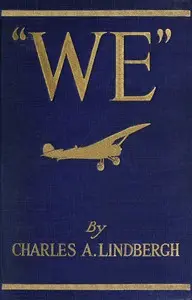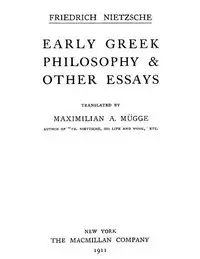"We" by Charles A. Lindbergh is a memoir recounting the famed aviator's life and his historic transatlantic flight, written in the late 1920s. The book offers not only a narrative of Lindbergh's personal experiences but also insightful reflections on the future of aviation. It highlights his remarkable journey, including his early fascination with flying and the parameters surrounding the monumental flight of the "Spirit of St. Louis." The opening of the memoir provides a detailed insight into Lindbergh's upbringing, illustrating the influences of his family background as well as his initial fascination with aviation. He reminisces about his childhood in Minnesota and the formative experiences that ignited his passion for flight, including barnstorming adventures and the technical difficulties he faced while learning to fly. Lindbergh sets the stage for his remarkable journey with a sense of historical context and personal reflection, emphasizing his relentless pursuit of a lifelong dream. The opening clearly indicates that the memoir will interweave personal history with broader themes of innovation and national pride, making it enticing for readers interested in aviation history, personal achievement, or the early 20th-century American experience. (This is an automatically generated summary.)

"We" : $b The famous flier's own story of his life and his trans-Atlantic flight, together with his views on the future of aviation
By Charles A. (Charles Augustus) Lindbergh
Wikipedia page on this work: https://en.wikipedia.org/wiki/%22WE%22_(1927_book)
Charles Augustus Lindbergh was an American aviator and military officer. On May 20–21, 1927, he made the first nonstop flight from New York City to Paris, a distance of 3,600 miles (5,800 km), flying alone for 33.5 hours. His aircraft, the Spirit of St. Louis, was designed and built to compete for the $25,000 Orteig Prize for the first flight between the two cities. Although not the first transatlantic flight, it was the longest at the time by nearly 2,000 miles (3,200 km) and the first solo transatlantic flight. It became known as one of the most consequential flights in history and ushered in a new era of air transportation between parts of the globe.












